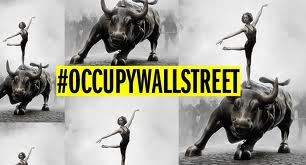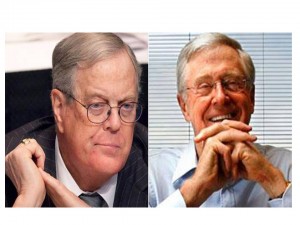As Occupy Wall Street expands into 1,500 cities worldwide with several million people joining on the streets, it becomes blatantly obvious that despite mainstream media’s trivialization of the movement and after a month of protesting it’s still gaining momentum. Occupy Wall Street represents the first major discontentment of this upcoming generation, my generation, which is turning twenty to thirty and beginning to inherit what our parents and elders left us and not liking it—mainly because it’s disseminating into ruin while exploiting and manipulating a vast majority of people in this paradoxical situation (e.g. a capital-based economy that places too much value on things while not giving people the opportunity, or jobs, in order to acquire them).
The most evident example of how mainstream media and the population don’t understand what Occupy Wall Street means is by calling it the Tea Party of the left. The two’s association come parallel only in that they deal with socioeconomic problems, but that’s where the similarities begin and end. Occupy Wall Street calls for a complete reform of political and economic system that, despite what many pundits have been wrongly associating with communism or socialism, reflect a growing population’s discontent over corporate bailouts, depletion of jobs, and a lack of governmental regulation. The Tea Party, on the other hand, says there’s still too many regulations and that we need to continue to deplete the power of the federal government despite the fact that we are in a historically all-time low in relation to federal taxes, government regulation, and corporate bourgeoning, in regards at least to post-Industrial Revolution in the States.
People are beginning to realize that a lack of regulation does not reflect the interest of the people in the long run, because private interests cannot envelope the entirety of the public, thus meaning that public policy must, in order to sustain a society, appeal to those without, or those not born with the same privileges and opportunities that a vast majority are. But granted, never before in history have people been given the mobility to move up the proverbial social ladder, and many capitalize on the opportunities they are given better than others. But to assume that each individual is built in this same capacity neglects a great many variables that determine the tapestry of each and every individual’s life as well as that of their society. Essentially, plan for the worst, expect the best is perhaps the best mentality to have in regards to public policy.
 Instead, for the past fifty some odd years, our public policy has reflected the interest of an elite group, in which they manipulate the present for the sole purpose of their benefit and not that of society at large. Occupy Wall Street and the overall Occupy Movement in general has rightfully identified the source of said elite group as a minority of economic powerhouses in the private sector. And never has there been such a massive protest in which everyone realized that while the politicians were at times to blame, they were not the nexus of the causal relationship to our economic troubles—in fact, there’s been a massive revelation that didn’t even occur during the Great Depression, in which people have begun to realize the corporate infrastructure our country has based its public policy on.
Instead, for the past fifty some odd years, our public policy has reflected the interest of an elite group, in which they manipulate the present for the sole purpose of their benefit and not that of society at large. Occupy Wall Street and the overall Occupy Movement in general has rightfully identified the source of said elite group as a minority of economic powerhouses in the private sector. And never has there been such a massive protest in which everyone realized that while the politicians were at times to blame, they were not the nexus of the causal relationship to our economic troubles—in fact, there’s been a massive revelation that didn’t even occur during the Great Depression, in which people have begun to realize the corporate infrastructure our country has based its public policy on.
And so while you might see some crazy grievances of the Occupy Movement, though they might not all be reflective of the entirety of the movement, like an increase of minimum wage to twenty dollars an hour, the end of legally identifying corporations with individual rights, free education, and forgiveness of all debt, don’t assume that these grievances have no validity because they seem leftist. As the media has pointed out countless of times, this is a generally youth movement, just like the Counterculture of the sixties and seventies, and if we were to compare the two on any level then it would be obvious that this will have a impact, whether people are ready for it or not, on the relationship the citizenry has with its political and economic powers.
Occupy Wall Street's Momentum and Meaning,




